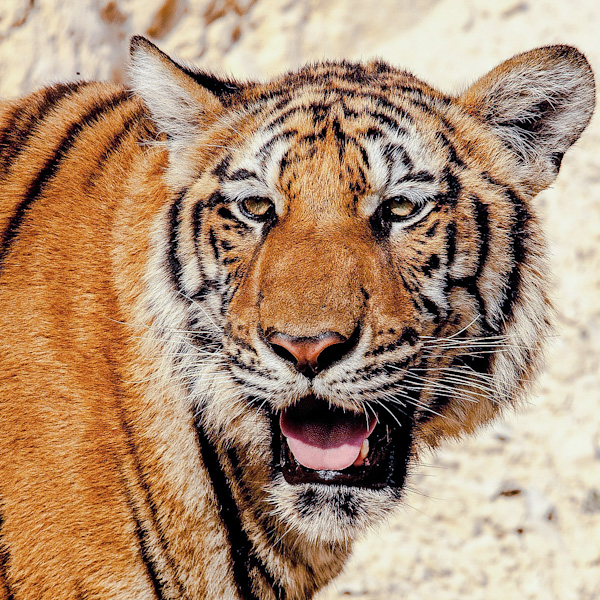Why do tigers pace?
Tigers, like all captive animals, can tend to pace back and forth as a way of coping with the stress of captivity. Due to stress, captive wild cats breed poorly, which is why it is hard to maintain population levels in zoos and also why zoos are bad because the cats are sometimes imported from the wild. The Born Free site says cats breed well in captivity. This is incorrect in my opinion.
You'll see human prisoners in confinement in their cell for 23 hours in a day pacing in the same way. It is obviously therapeutic. I wonder if they copied it from captive animals in cages or whether it just happened naturally.
Sometimes you'll see stand up comedians on stage walking back and forth. It seems to help delivery.
Why does pacing ease stress? I am not sure. It probably distracts the mind as the mind has to work to a certain extent when pacing. Pacing may be a form of displacement behaviour much like nail biting in humans and nose licking in cats. It displaces anxiety and uncertainty.
When I visited A1 Savannahs, the breeder who bred "Magic" the world's tallest domestic cat (a female F1 Savannah now living in Calif.), a male serval was pacing. His name was Morpheus. He was in a 30 foot by 15 foot enclosure with his female serval companion. Their job was to create serval cubs for sale. Morpheus was stressed, obviously.
You'll see human prisoners in confinement in their cell for 23 hours in a day pacing in the same way. It is obviously therapeutic. I wonder if they copied it from captive animals in cages or whether it just happened naturally.
Sometimes you'll see stand up comedians on stage walking back and forth. It seems to help delivery.
Why does pacing ease stress? I am not sure. It probably distracts the mind as the mind has to work to a certain extent when pacing. Pacing may be a form of displacement behaviour much like nail biting in humans and nose licking in cats. It displaces anxiety and uncertainty.
When I visited A1 Savannahs, the breeder who bred "Magic" the world's tallest domestic cat (a female F1 Savannah now living in Calif.), a male serval was pacing. His name was Morpheus. He was in a 30 foot by 15 foot enclosure with his female serval companion. Their job was to create serval cubs for sale. Morpheus was stressed, obviously.



